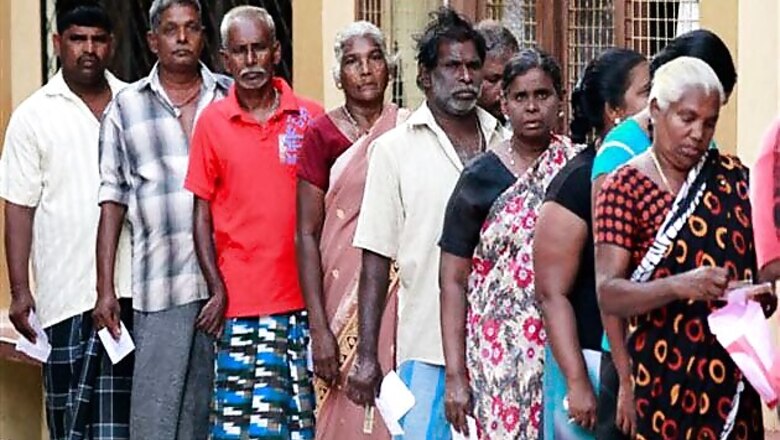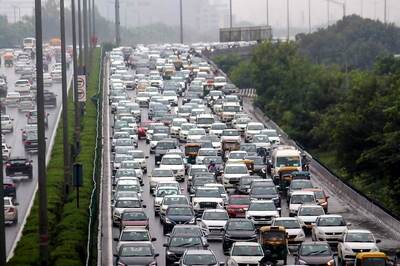
views
Voters in Sri Lanka's Tamil majority Northern Province on Saturday began voting in the first local elections in 25 years to elect a council to govern the former war zone, four years after the military defeated LTTE.
Voting at some 850 stations began on schedule amid tight security to elect the first post-war provincial administration in the region dominated by the LTTE until their defeat in 2009.
Soldiers were patrolling the streets with police, election observers said.
More than 2,000 local and foreign observers were deployed in the province where nearly 715,000 people are eligible to vote in the election which would elect a 36-member northern provincial council for a five-year term.
Jaffna, Kilinochchi, Mannar, Mullaithivu and Vavuniya districts form the northern provincial council's jurisdiction.
These districts for decades held sway as the LTTE heartland.
The run-up to the election has seen allegations of army intimidation. But this has been firmly denied by the authorities.
There are nearly 906 candidates for the polls in northern council which is witnessing its first ever elections after councils were created under the 13th Amendment, a byproduct of the 1987 Indo-Lanka Accord.
In the first north and east provincial council elections held in 1988, only one political party participated due to the LTTE's armed campaign to set up a separate Tamil homeland.
One of the election monitoring groups, The Centre for Monitoring Election Violence (CMEV) predicted a low voter turnout at the Northern Provincial Council (NPC) elections due to widespread disillusionment with the election process and unacceptable long distances to polling centres.
"The Election Commissioner s Office is doing its best under difficult circumstances, but is handicapped by an outdated system in need of reform, compounded by inadequate funds.
"Yet, the systematic misuse of State resources, notably of the Ministry of Economic Development, to benefit pro-government candidates, and the deliberate violation of election law through combining development activities with election campaigning have irreparably flawed the democratic process in the Mullaitivu District," the CMEV stated in its pre-poll report on the Mullaitivu which is one of the five northern districts.
The elections are also being held in the Sinhala-dominated Southern areas, Central and North Western provinces.
Ironically, in the run-up to the polls this time, the northern election campaign was fought not in the north but from the capital Colombo and the rest of the south.
The reason was the government's blistering attack on the main Tamil party, TNA's manifesto.
It was the Vadukkodai resolution which inspired slain LTTE chief Velupillai Prabakaran to wage his bloody separatist campaign for a separate Tamil homeland in the north.
President Mahinda Rajapaksa accused the TNA of trying to drag the island back to LTTE's demand for separation.
The TNA manifesto has also vowed to retain the existing system of provincial councils through their mandate.
This would strike a chord with India as New Delhi had urged Colombo to shelve its plan to dilute the provincial powers that became part of the Sri Lankan constitution due to the Indian intervention in 1987.
Another point of irritation to Colombo was Wigneswaran's remark hailing Prabakaran a hero.
Rajapaksa's dislike for Wigneswaran was manifested in his address in Vavuniya.
He said it was regrettable that TNA had chosen Wigneswaran who was someone from Colombo to be its northern chief ministerial aspirant.
The TNA is expected to win in the northern region.
Its main rival is the ruling United Peoples Freedom Alliance (UPFA) led by President Rajapaksa.
The rebels were defeated in May 2009 but the final phase of that war remains dogged by war crimes allegations and the government's rights record since then has come in for trenchant criticism.
The ruling UPFA candidates have been arguing that Sri Lankan President Mahinda Rajapaksa deserves credit for ending the war and bringing development to the region.




















Comments
0 comment